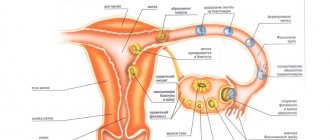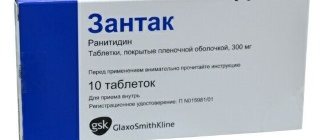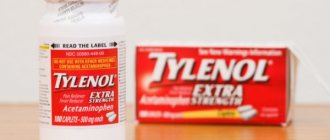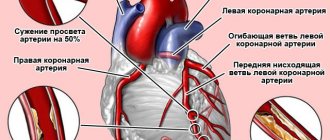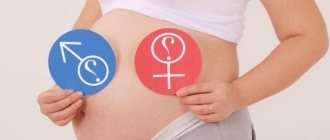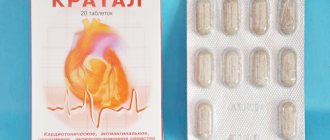Pharmacodynamics and pharmacokinetics
Diclofenac sodium is characterized as an anti-inflammatory , antiplatelet , analgesic and antipyretic agent. It has a non-selective inhibitory effect on COX-1 and COX-2 , reduces the content of prostaglandins at the site of inflammation, and also interferes with the metabolism of arachidonic acid . For rheumatic diseases, this substance helps reduce swelling of the joints, pain, and the severity of morning stiffness. This significantly improves the functional state of the joints.
Pyridoxine hydrochloride normalizes the functioning of the nervous system. It serves as a coenzyme for important enzymes found in nerve tissues. In addition, it takes part in the biosynthesis of many neurotransmitters .
Thiamine hydrochloride, entering the human body, is converted into cocarboxylase . It is a coenzyme for many enzymes. It is an important component of metabolic processes in the body. Actively participates in the processes of nervous excitation at synapses .
Cyanocobalamin is a means for stabilizing hematopoiesis and maturation of red blood cells, which takes part in many biochemical reactions necessary for the normal functioning of the body. It also has a beneficial effect on processes occurring in the nervous system. Coenzyme forms of this substance are needed for cell renewal and growth.
The combination of B vitamins found in Neurodiclovit (pyridoxine, thiamine, cyanocobalamin) potentiates the analgesic properties of diclofenac.
Diclofenac is characterized by rapid and complete absorption upon entering the body. However, food intake slows down this process by 1-4 hours, and also reduces the maximum concentration of the active component by 40%. After taking the capsules orally, the maximum concentration of this substance is achieved in the body after 2-3 hours. It is linearly dependent on the amount of the administered dose.
The degree of bioavailability of the drug is 50%. Strong connection with blood plasma proteins. The half-life of elimination from synovial fluid is approximately 4-5 hours. The maximum concentration in synovial fluid is reached approximately 3 hours later than in plasma.
50% of the active component is broken down in the liver. Metabolic processes occur after hydroxylation and conjugation with glucuronic acid . The enzyme system P450 CYP2C9 is involved in the breakdown of Neurodiclovit . 65% of the drug is excreted through the kidneys in the form of metabolites , less than 1% - unchanged. The remaining part is excreted through bile, also in the form of metabolites .
Systemic clearance – 350 ml/min. The plasma half-life is 2 hours. Diclofenac may pass into breast milk.
The B vitamins included in the preparation are water-soluble. Absorption of pyridoxine and thiamine occurs in the upper part of the small intestine. This process largely depends on the dosage. In the body, they are broken down in the liver and excreted mainly through the kidneys. Only about 9% is excreted unchanged. At higher doses, the excretion of pyridoxine and thiamine through the intestines increases.
The absorption of cyanocobalamin largely depends on the presence of intrinsic factor in the stomach and upper small intestine. The transport of this substance is determined by transcobalamin . After breakdown in the liver, it is excreted primarily in bile. Only about 6-30% of cyanocobalamin is excreted through the liver.
Contraindications
The medicine should not be taken in case of hypersensitivity to its components, bleeding from the gastrointestinal tract, bronchial asthma with polyposis of the nasal mucosa, hemostasis , pregnancy , breastfeeding , hematopoietic disorders, intracranial bleeding, erosive and ulcerative lesions of the gastrointestinal tract (especially during exacerbation). In addition, it is not recommended to give this drug to patients in childhood.
Neurodiclovit is prescribed with caution for congestive heart failure, anemia , coronary heart disease, bronchial asthma , liver or kidney failure , diabetes mellitus , inflammatory bowel diseases, inducible porphyria , alcoholism, diverticulitis , arterial hypertension , systemic connective tissue diseases, edema syndrome , old age . It is also necessary to carefully monitor the patient's condition if the drug is prescribed after extensive surgery.
special instructions
Before you buy Neurodiclovit caps. No. 30, you must familiarize yourself with the special instructions provided by the manufacturer. To avoid negative consequences, the patient must undergo regular examination to monitor blood counts, kidney and liver function, and analyze the composition of feces for foreign (blood) impurities.
To achieve maximum effect, the manufacturer allows taking capsules half an hour before meals, but this should be done in extreme cases. Persons with heart failure need to be extremely careful not to allow a decrease in the volume of blood circulating in the body.
If during treatment the patient notices an increase in the activity of transaminases in the liver, signs of toxicity may appear. In this case, the drug should be stopped. In renal failure, the process of excretion of metabolites increases, it occurs together with bile. In case of hepatitis (in any form of its manifestation), the indicators for taking the drug do not change.
Side effects
The use of capsules may be accompanied by the following side effects:
- gastrointestinal tract and liver : increased levels of liver enzymes, abdominal pain , diarrhea , constipation , bleeding in the gastrointestinal tract, feeling of bloating, nausea, flatulence , peptic ulcer (complications are possible);
- sense organs : tinnitus;
- genitourinary system : oliguria , fluid retention, interstitial nephritis , nephrotic syndrome , acute renal failure , proteinuria , papillary necrosis , hematuria , azotemia ;
- nervous system : dizziness , headache ;
- skin : rash, itching ;
- immune system and hematopoietic organs : agranulocytosis , worsening infectious processes, leukopenia , anemia , eosinophilia , thrombocytopenia , thrombocytopenic purpura .
In addition, in rare cases, disorders such as vomiting, melena , esophageal damage, liver necrosis , dry mucous membranes, hepatorenal syndrome , colitis , jaundice , aphthous stomatitis , hepatitis , cirrhosis , changes in appetite, cholecystopancreatitis appear in the gastrointestinal tract and liver .
Rarely, the central nervous system may also cause sleep disturbance , depression , aseptic meningitis , general weakness, nightmares, drowsiness , irritability, convulsions, disorientation, and increased anxiety. And on the part of the skin - alopecia , increased photosensitivity, eczema , toxic dermatitis , exudative erythema multiforme , urticaria , Lyell's syndrome , pinpoint hemorrhages.
Very rarely, side effects such as increased blood pressure, blurred vision, taste disturbance, scotoma , diplopia , hearing impairment, laryngeal edema, cough, bronchospasm , pneumonitis , extrasystole , myocardial infarction , congestive heart failure , pain in the chest, anaphylactoid reactions are noted. , swelling of the lips and tongue, anaphylactic shock , allergic vasculitis .
Side effects
On the side of the cardiovascular system:
heart failure, arterial hypertension, swelling, tachycardia, heart pain, chest pain, myocardial infarction, vasculitis
On the side of the blood system:
impaired hematopoiesis (leukopenia, thrombocytopenia, aplastic anemia, panmyelopathy, purpura, agranulocytosis, hemolytic anemia).
On the side of the nervous system:
headache, fatigue, drowsiness, seizures, confusion, paresthesia, impaired memory, anxiety, tremor, aseptic meningitis, impaired relish, impaired cerebral blood flow, impaired perception of drugs.
From the side of the organs:
impaired vision (blurred image, blurred vision).
On the side of the hearing organs:
noise in the ears, loss of hearing.
On the side of the scilicointestinal tract
: epigastric pain; anorexia; geek; tediousness; rozladi shlunka; gastrointestinal bleeding; Schulkovo-intestinal tracts, which
accompanied by severe bleeding; perforation and anemia; puking; diarrhea; dyspepsia; flatulence; gastritis; colitis (including hemorrhagic colitis and acute viral colitis or Crohn's disease), constipation; stomatitis; glossit; relax the guide; increasing the acidity of the shell juice; diaphragm-like intestinal strictures; pancreatitis.
On the side of the north and southwest roads:
nir deficiency, nephrotic syndrome, hematuria, acute nir deficiency, interstitial nephritis, papillary necrosis, proteinuria.
On the side of the skin and under the skin fabrics
: irritation, redness, itching, scaling, erythema of various species, exfoliative dermatitis, photosensitive reactions.
On the side of the immune system
: allergic reactions, such as bronchospasm, urticaria, anaphylactic/anaphylactoid reactions, Stevens-Johnson syndrome, Lyell's syndrome, angioedema.
On the side of the hepatobiliary system
: hepatitis, including bliskavich hepatitis, zhovtyanitsa, abnormal transaminases, in isolated episodes of gostria.
Mental disorders:
insomnia, state of supernatural awakening, irritability, disorientation, depression, nightmares, psychotic disorders, illness.
Zagalni ruins
: blockage of sodium and sodium in the body, peripheral swelling, increased sweating, bronchial asthma, pneumonia.
Clinical and epidemiological data indicate the risk of thrombotic complications (for example, myocardial infarction or stroke), complications associated with diclofenac administration, and zocrema in high-therapeutic drugs. doses (150 mg per dose) and three hours.
Instructions for use of Neurodiclovit (Method and dosage)
For those who have been prescribed Neurodiclovit, the instructions for use recommend swallowing the capsules whole during meals, with sufficient liquid. Dosages may vary depending on the severity of the disease. On average, the dose is designed to take 1-3 capsules per day, that is, about 100 mg of diclofenac.
Instructions for use of Neurodiclovit indicate that adult patients are usually prescribed 2-3 capsules per day to begin the course. But the maximum dosage should not exceed three capsules. Maintenance dose – 1 capsule 1-2 times during the day.
Elderly patients should use this drug with caution.
Children over the age of 14 years can be prescribed Neurodiclovit, but its maximum dosage should not exceed 1 capsule 2 times a day.
The duration of the course is determined by a specialist.
Release form
The release form of Neurodiclovit is represented by gelatin capsules in a hard shell, size No. 1. The capsules have a modified release feature. Their shell is light yellow with a pink tint. The contents of the capsules are a mixture of white granules, as well as a pink powder compound (the composition is described in the corresponding section).
Capsules are packed in a blister of 10 pieces. There are 3 blisters in a cardboard box. The kit includes instructions for using the drug in Russian. The owner of the registration certificate for Neurodiclovit is Valeant LLC. The drug was produced in Austria. ATX code – M01AB55.
Overdose
When taking the drug in increased dosages, the following symptoms may be observed: vomiting, headache , clouding of consciousness, dizziness , shortness of breath . Patients in childhood may experience myoclonic convulsions , abdominal pain , liver and kidney dysfunction, nausea, and bleeding.
Treatment includes gastric lavage, forced diuresis , and activated charcoal. Therapy is symptomatic. Hemodialysis is almost ineffective.
Features of good stagnation
The incidence of side effects can be modified by maintaining the minimum effective dose for the shortest hour necessary to control the symptom.
Use caution when administering the drug to patients with bronchial asthma, hay fever, swelling of the nasal mucosa (nasal polyps) or chronic infectious diseases of the respiratory system.
Proper observation and consultation is required in patients with a history of arterial pressure and/or heart failure, and when treating NSAIDs, it was reported that there was blockage and swelling.
Patients with insufficiently controlled arterial hypertension, heart failure, pre-existing ischemic heart diseases, peripheral arterial vascular diseases and/or cerebrovascular diseases are treated I should not take diclofenac after careful consideration. Similar factors should also be considered before taking the drug if the patient is susceptible to cardiovascular disease (for example, arterial hypertension, hyperlipidemia, cardiovascular diabetes, pallor).
Clinical studies and epidemiological data show that diclofenac administration, especially in high doses (150 mg per dose), and during the trial period may be associated with minor changes in the risk of arterial thrombotic complications ( myocardial infarction or attack).
During daily treatment with Neurodiclovit, it is recommended to monitor peripheral blood levels, liver function, and liver function.
Patients with varicose vein disease of the duodenum or a history of dyspeptic symptoms and patients with liver disease, cancer, heart failure or arterial hypertension will require close medical monitoring.
All NSAIDs are characterized by scolio-intestinal lesions, bleeding and perforation (which can be fatal) and could be observed during the period of treatment, during pre-chewing symptoms, or in all cases, or in patients Cases with a history of serious bowel ducts. In general, such cases are most dangerous for patients of the summer age. In some cases, when patients who take diclofenac develop complications, the drug needs to be changed.
Severe, sometimes fatal, severe reactions, including exfoliative dermatitis, Stevens-Johnson syndrome, and toxic epidermal necrosis, have rarely been reported in association with chronic NSAIDs, including diclofenac. h. The greatest risk of these reactions occurs at the beginning of therapy, and the development of these reactions is observed in most cases during the first month of treatment. Take the drug immediately at the first manifestations of skin viscera and mucous membrane swelling or in case of any other manifestations of hypersensitivity.
Diclofenac, through its pharmacological powers, can mask the symptoms characteristic of infectious-inflammatory illnesses.
When vitamin B12 is administered, the clinical picture, as well as laboratory tests for funicular myelosis or pernicious anemia, may lose their specificity.
Drinking alcohol and black tea reduces the absorption of thiamine. Drinking drinks to remove sulfites (such as wine) promotes the degradation of thiamine.
Patients with newborns who suffer from seizures that are accompanied by megaloblastic anemia and vitamin B12 deficiency should not take the drug.
The drug should not be used for angina pectoris.
It is possible to prescribe diclofenac to patients with significant risk factors for cardiovascular diseases (for example, hypertension, hyperlipidemia, diabetes, chicken) only after a definitive clinical assessment. Remnants of the cardiovascular risk of diclofenac may grow with higher dosages and the need for treatment, which must be stagnated for a short period and at the lowest effective dose. It is necessary to periodically review the patient's use of stasinated diclofenac to improve symptoms and response to therapy. Patients over 65 years of age should be treated with caution.
Interaction
Prescribing this medication may cause an increase in:
- lithium level when combined with lithium preparations;
- severity of adverse reactions when using other NSAIDs;
- the likelihood of bleeding in the gastrointestinal tract in combination with glucocorticoids ;
- the effectiveness of potassium-sparing diuretics and drugs that inhibit platelet aggregation ;
- concentrations and toxicity of Methotrexate .
In addition, the effectiveness of Neurodiclovit is reduced when interacting with loop diuretics and antihypertensive drugs . The concentration of its active substance (diclofenac) also decreases when combined with acetylsalicylic acid . The absorption of cyanocobalamin is reduced when taken with Colchicine , Neomycin , PAS and antidiabetic drugs such as Biguanidine .
Neurodiclovit should not be used simultaneously with Levodopa , as it can dull the severity of its antiparkinsonian effect. In addition, it may reduce the antihypertensive effect of diuretics or antihypertensive drugs . So this combination is prescribed with caution. In this case, it is imperative to control blood pressure . In addition, it is necessary to consume a sufficient amount of fluid, and at the beginning and after completion of the course, monitoring of kidney function is necessary, as nephrotoxicity .
serotonin reuptake inhibitors, the risk of bleeding from the gastrointestinal tract increases.
The dosage of hypoglycemic drugs while using Neurodiclovit should be carefully monitored.
Combination with Colestipol or Kolestyramine reduces the degree of absorption of diclofenac by approximately 30-60%. So between taking these medications it is necessary to take an interval of several hours. In addition, the concentration of diclofenac can be reduced by some drugs that stimulate enzymes ( Rifampicin , Phenytoin , Carbamazepine , St. John's wort ).
It should also be taken into account that thiamine is inactivated by 5-fluorouracil , and antacids , in turn, reduce the degree of its absorption . Loop diuretics can inhibit tubular reabsorption of thiamine and, with a long course of treatment, reduce its concentration.
Compound
The Neurodiclovit capsule contains the following active ingredients:
- Diclofenac sodium (50 mg).
- Vitamin complex of thiamine hydrochloride (50 mg), pyridoxine hydrochloride (50 mg) and cyanocobalamin (0.25 mg).
Additional components include: povidone (8.42 mg), dispersion 30% (5.6 mg), triethyl citrate (0.6 mg), talc (3.08 mg). In a 1:1 ratio, the preparation retains the proportion of methacrylic acid and ethyl acrylate copolymer.
The outer shell of the capsules is made of titanium dioxide (0.92 mg), red iron oxide (0.0061 mg), red iron oxide (0.0924 mg), gelatin (45.18 mg). The lid contains titanium dioxide, gelatin, and red iron oxide.
Analogues of Neurodiclovit
Level 4 ATC code matches:
Voltaren
Rapten
Zerodol
Dickloberl Retard
Dikloberl N 75
Dicloberl
Ketanov
Dolak
Panoxen
Ketorolac
Naklofen Duo
Naklofen
Olfen-100
Olfen-75
Nizilat
Fanigan
Aertal
Ortofen
Flamidez
In pharmacies you can find the following analogues of Neurodiclovit:
- Blockium B12;
- Bol-Ran;
- Dilocaine;
- Diclofenac;
- Diclofenac S Paracetomol;
- Dolex;
- Maxigesik;
- Olfen-75;
- Fanigan;
- Flamidez;
- Cynepar.
Why tablets offered as analogues of this remedy help in each specific case is best checked with your doctor.
Neurodiclovit price, where to buy
The price of Neurodiclovit, on average, is about 220 rubles for a package containing 30 capsules. In Ukraine, the cost of this product is about 70 hryvnia. It is worth noting that the price of Neurodiclovit is lower than many of its analogues.
- Online pharmacies in RussiaRussia
- Online pharmacies in UkraineUkraine
LuxPharma* special offer
- Neurodiclovit caps.
30pcs 1280 rub. order
ZdravCity
- Neurodiclovit capsules 30 pcs. Lannacher Heilmittel
RUB 376 order
Pharmacy Dialogue
- Neurodiclovit capsules No. 30 Lannacher
RUB 393 order
show more
Pharmacy24
- Neurodiclovit No. 30 capsules G.L Pharma GmbH, Austria
159 UAH.order


